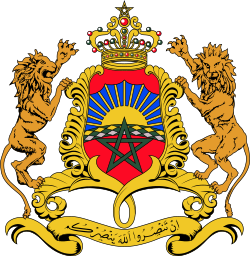| ||||||||||||||||||||||
| Results | ||||||||||||||||||||||
|---|---|---|---|---|---|---|---|---|---|---|---|---|---|---|---|---|---|---|---|---|---|---|
| ||||||||||||||||||||||
 |
|---|
A referendum on constitutional reforms was held in Morocco on 1 July 2011, called by the king in response to a series of protests across Morocco that began on 20 February 2011 when over ten thousand Moroccans participated in demonstrations demanding democratic reforms. A commission was to draft proposals by June 2011. [1] A draft released on 17 June foresaw the following changes: [2] [3] [4]
Contents
- requiring the King to name a Prime Minister, renamed Head of government, from the largest party in Parliament;
- handing a number of rights from the monarch to the PM, including dissolution of parliament;
- allowing parliament to grant amnesty, previously a privilege of the monarch;
- making Berber an official language alongside Arabic
The changes were reportedly approved by 98.49% of voters. Despite protest movements calling for a boycott of the referendum, government officials claimed turnout was 72.65%. [5] [6]
Following the referendum, early parliamentary elections were held on 25 November 2011.
